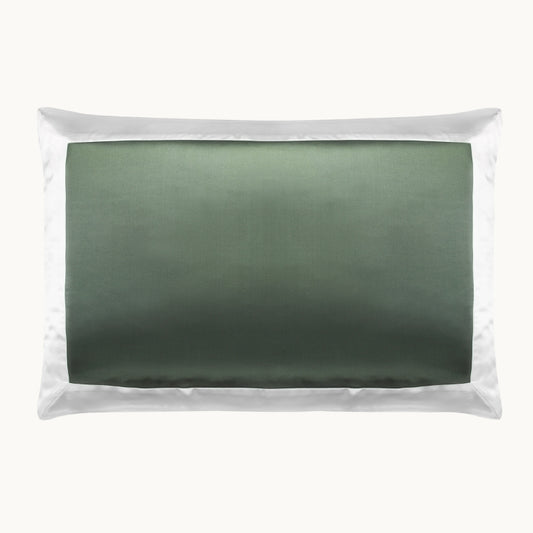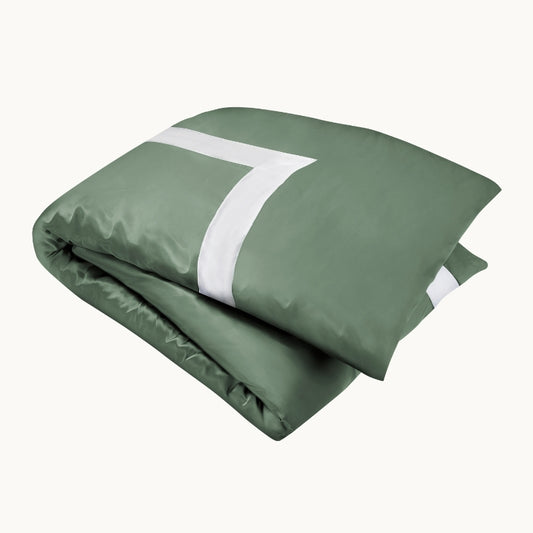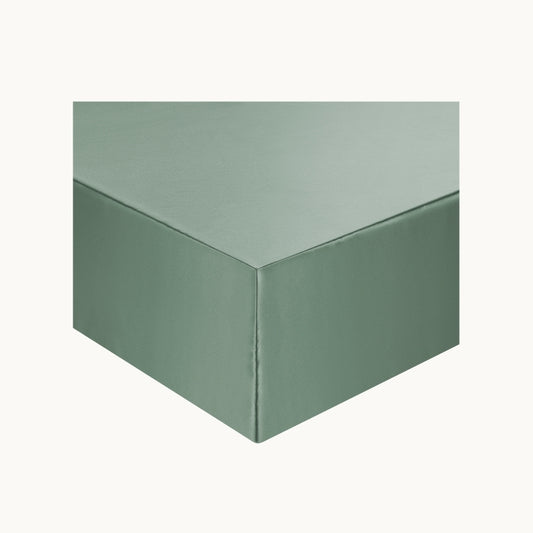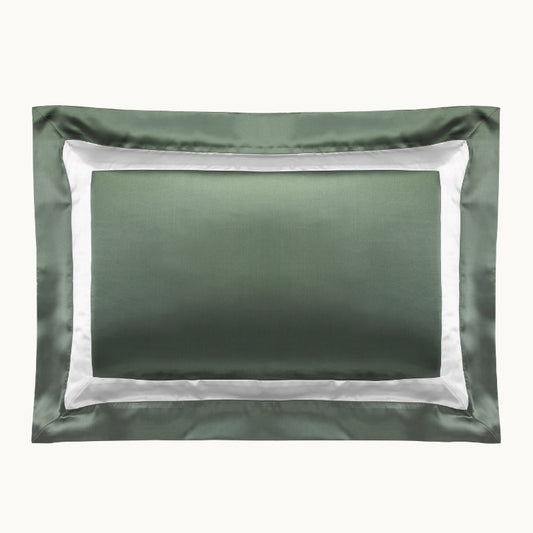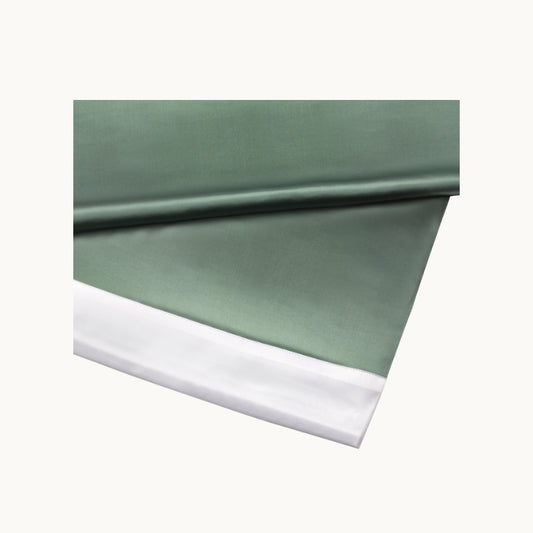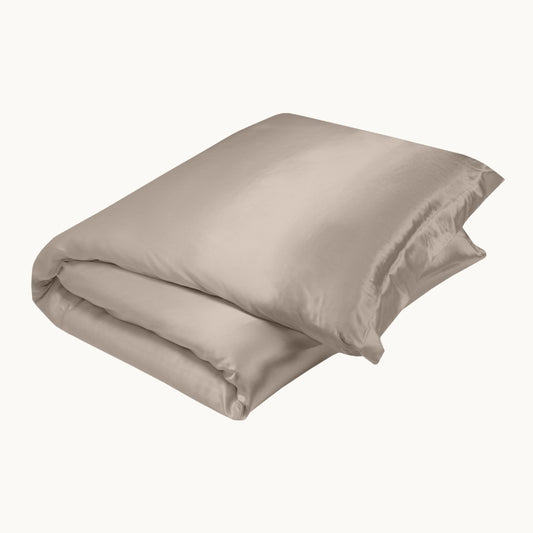2019Silk is a beautifully luxurious fabric, widely sought after due to its natural properties known to help improve the quality of your sleep. Silk also has numerous health benefits, as it is a naturally hypoallergenic material. All Gingerlily silk products are crafted from the finest, A grade mulberry silk. Due to the very delicate nature of this sophisticated fabric, many people are unaware of how to correctly wash and care for silk products. K...

How to care for Silk
Posted on 24 November 20202019Silk is a beautifully luxurious fabric, widely sought after due to its natural properties known to help improve the quality of your sleep. Silk also has numerous health benefits, as it is a naturally hypoallergenic material. All Gingerlily silk products are crafted from the finest, A grade mulberry silk. Due to the very delicate nature of this sophisticated fabric, many people are unaware of how to correctly wash and care for silk products. Keep reading our guide, as we outline our recommended preferences on how to correctly care for silk. Silk, like woollen and linen fabrics, requires a specialist, delicate cleaning regime, using specific, mild detergents and lower temperature wash cycles in order to protect the silk’s natural properties. But no two silk products are the same and cleaning recommendations may differ from silk bed linen, to silk bedspreads and silk nightwear. If customers follow our silk cleaning guide correctly, your silk products will stay beautifully supple, shiny and soft for years to come, as silk fibre remains incredibly strong when properly maintained.

Caring for Silk Bed Linen and Nightwear
Our Gingerlily silk bed linen and nightwear is machine washable at a significantly cooler temperature of just 30°C. Customers should follow our outlined instructions on the label of our silk bed linen and nightwear for reference, and if you’re still uncertain, a standard practice to follow is to lower the temperature and use a gentle-wash setting (such as a dedicated silk cycle or delicate or sensitive wash). Due to the natural properties of silk, silk bed linen and nightwear garments require a lower temperature than cotton and other fabrics, as the introduction of heat can cause irreplaceable damage to the silk fibres. If silk is washed at a higher temperature than 30°C, the fabric will harden, become brittle and tear very easily, with the risk of shrinking. We recommend washing all silk products together, as opposed to mixed in with other fabric and textures, as other materials with less delicate qualities can rub against the silk during the washing process and damage the silk’s threads. Gingerlily also advises never to boil or soak your silk products. It’s also important to use a specially-formulated silk detergent, as, unlike regular detergents, these offer a neutralised pH and are gentle on the silk’s natural proteins. We would advise our customers to use a formulated detergent, such as our Gingerlily Silk Wash as this keeps silk beautifully soft and supple whilst maintaining its natural sheen. In the event of your silk being soiled or stained, be sure to spot clean the mark before machine washing at a cool temperature with a specially-formulated stain remover. After washing, Gingerlily would always advise airing your silk bed linen and nightwear outside, however, if this is not convenient, our Gingerlily bed linen and nightwear garments can be tumble-dried at a very low temperature. When hanging silk to air-dry, keep it away from direct sunlight whenever possible, as silk dries very quickly, you shouldn’t need to hang it outside for long. Once silk has been properly laundered, we strongly advise our customers to iron their silk to restore the sheen, softness and suppleness of the fabric. The heat and steam from the iron will also bring out the colour and natural shimmer of the fabric, to restore the silk back to its natural state. Silk, surprisingly, is much easier to iron than regular cotton or linen fabrics: simply use medium heat with steam so the iron can efficiently glide over the fabric and remove all creases very quickly. Be careful not to iron on too high of a heat, as this can cause damage to your silk product.Caring for Silk Bedding
Our premium range of silk-filled pillows and duvets work to regulate body temperature which inevitably leads to less perspiration during sleep, which poses a lesser risk of your silk filling attracting dust mites. As such, this means Silk bedding doesn’t need to be washed as regularly as a standard cotton or polyester bedding set. However, we would still advise that our Gingerlily silk filled duvets and silk filled pillows are aired, at least once or twice a year during the warmer months, to help restore shape and natural silk properties. Small stains can be spot-cleaned with a special stain remover if absolutely necessary. However, if in the event of an accidental spillage or spoil, a full launder is required and a professional launder is our recommended method of cleaning for silk bedding. Our natural, delicate A grade silk products should always be air-dried, though this isn’t always achievable in colder months. If this is the case, our silk pillows and duvets can also be tumble dried on a cool cycle of 30°C. However, it’s always best to read over and check the necessary care instructions on the label.Caring for Silk bedspreads, Cushions and Throws
Our silk bedspreads, cushions and throws are made using only the finest quality long-fibre mulberry silk. Because of this, they are less susceptible to collecting bacteria as opposed to a standard, conventional duvet. These Gingerlily products should be professionally dry cleaned, by a trusted dry cleaner that offers eco-services and uses milder, gentle chemicals in a bid to not disrupt any of the silk’s natural properties. Typically, dry cleaners advertise their services outside of the store, however, it’s always useful to ask instore regarding the professional-cleaning services they offer.

